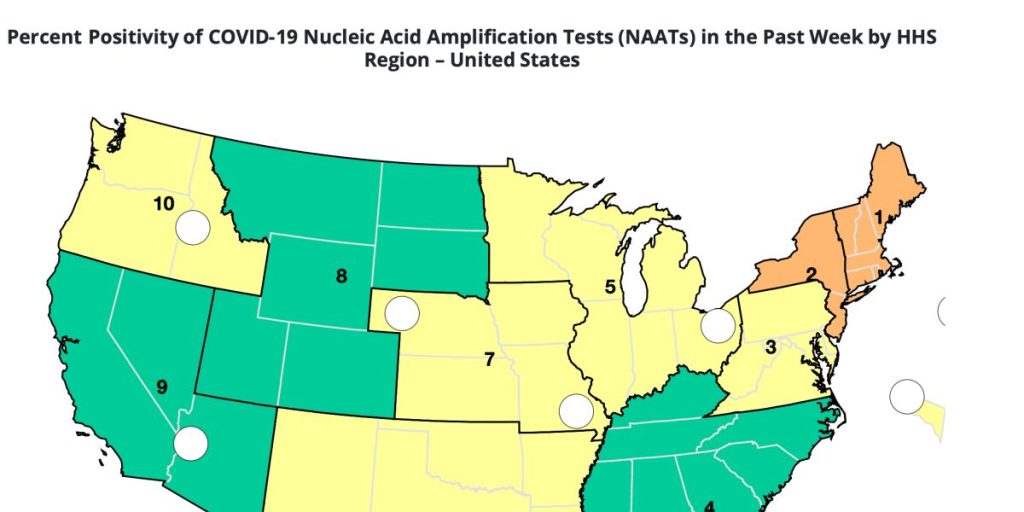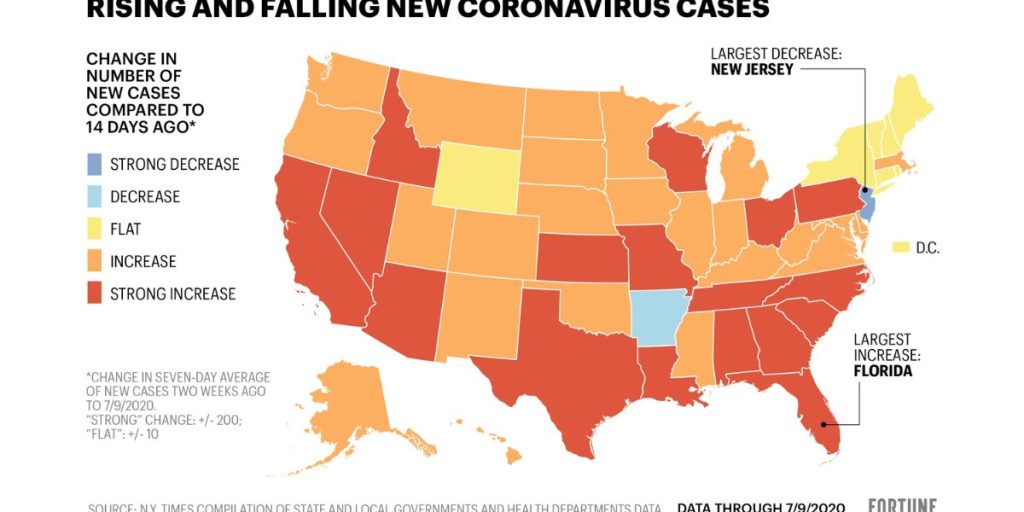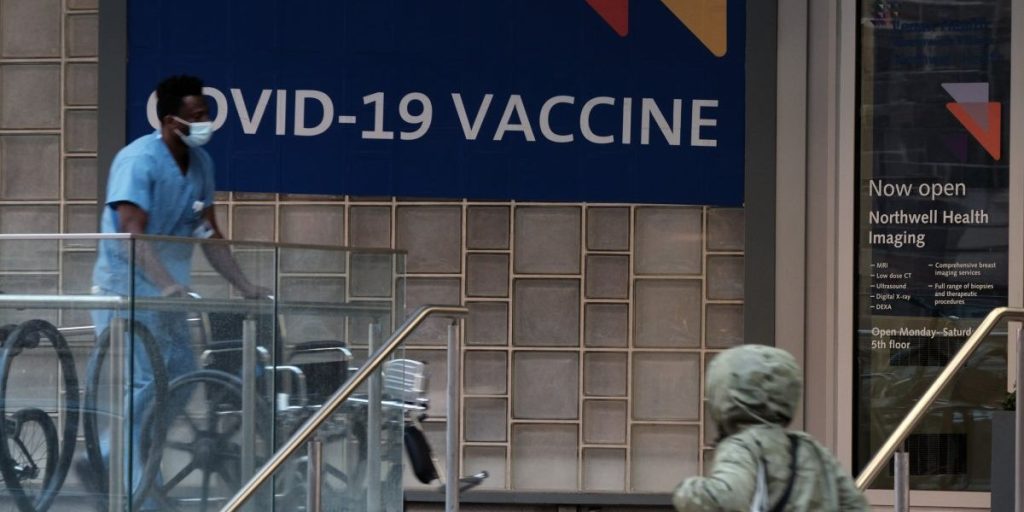As per the most recent data, New York and other Northeastern states had the greatest rates of COVID-19 test positivity in the week ending January 6.
According to the Centers for Disease Control and Prevention (CDC), 15.8 percent of COVID-19 tests in the United States were positive that week, a modest increase from the previous week.
CDC’s map shows, that New Jersey, along with Puerto Rico and the Virgin Islands, had the highest rate of test positivity in the US, with 15.8 percent of tests coming back positive in the first week of 2024.

Vermont, Rhode Island, New Hampshire, Massachusetts, Maine, and Connecticut were next, with test positivity rates of 15.5%.
Meanwhile, California, the country’s most populous state, has one of the lowest test positivity rates. California, Nevada, Hawaii, and Arizona all had test positivity rates of 8.3 percent.
The CDC reported that COVID-19 was responsible for 4% of deaths in the week ending January 6, a 14.3% rise from the previous seven days.
In the week ending January 6, there were 35,801 hospitalizations due to COVID-19, a 3.2 percent increase over the previous week. According to the CDC, hospitalizations related to the virus are deemed minimal in around half of the country.

CDC further claimed that new hospital admissions for COVID-19 increased by more than 50% in December, while flu hospital admissions more than doubled from the end of November to the end of December. “These increases are typical for this time of year, and short-term forecasts suggest elevated numbers of hospital admissions will continue,” according to the agency.
More hospitals in the United States are forcing people to wear masks as health officials prepare for a second winter season in which COVID-19, flu, and other respiratory syncytial viruses (RSV) are circulating concurrently.
In December, New York City imposed a mask mandate on the city’s 11 public hospitals, and similar measures were imposed at hospitals in other states, including California and Massachusetts.
According to the CDC, COVID-19 continues to cause more hospitalizations and fatalities than flu and RSV combined.

The JN.1 variety is currently the most common in the globe, but the CDC says that while it may spread more easily or be better at evading our immune systems, there is no evidence that its consequences are more severe than those of other recent variants.
“There is no data that would indicate JN.1 infection produces different symptoms from other variants,” a CDC spokeswoman told Newsweek earlier this month. “In general, symptoms of COVID-19 tend to be wide-ranging with all variants.”
According to the spokesperson, a revised COVID-19 vaccine formula would protect against the JN.1 variation, and “existing vaccines, tests, and treatments still work well against JN.1.”